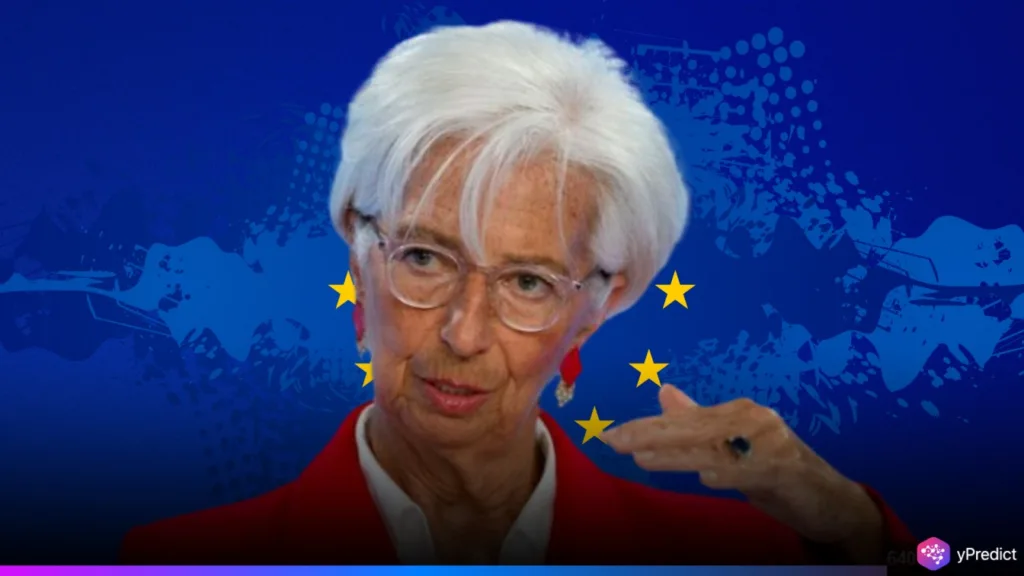
The European Central Bank is nearing its 2% inflation target, marking a possible shift in eurozone monetary policy. President Christine Lagarde recently expressed confidence that price stability is “within reach,” reflecting progress after years of economic turbulence, including the pandemic and energy shocks. This comes as the ECB cautiously reduces rates and financial markets adjust. With inflation easing, investors and policymakers are closely monitoring for signs of a strategic transition in the ECB’s policy approach.
ECB Nears Inflation Target Amid Caution
Bloomberg reports that the European Central Bank (ECB) is closing in on its goal of stabilizing consumer prices, with President Christine Lagarde emphasizing that achieving price stability requires broader financial stability, particularly in light of rising global uncertainties.
Recent ECB forecasts predict headline inflation will decline to 2.0% by 2025, while core inflation stays slightly below that. They expect wage growth, a key forward-looking inflation measure, to remain steady at 3.1% this year, easing concerns about rising inflation pressure.
In an interview with China’s Xinhua News Agency, Lagarde said the ECB’s 2% inflation goal is now within reach. She emphasized that lasting price stability depends on having a resilient and well-functioning financial system across the eurozone. She stated clearly, stable prices require strong financial institutions to support sustainable growth and monetary policy effectiveness.
Our primary responsibility at the ECB is price stability, and this is clearly defined in our strategy. We are within reach of the 2% medium-term inflation target that we have defined as price stability. But we cannot have price stability if we do not have financial stability.
Lagarde’s remarks follow the ECB’s eighth rate cut since June 2024, lowering the deposit rate to 2%. While a pause is expected in July, markets still anticipate a potential final cut later this year.
ECB projections show eurozone inflation will hit 2.0% in 2025, then ease to 1.6% by 2026. Wage growth is expected to remain moderate at 3.1%, supporting the goal of long-term price stability. Core inflation stays near target, reinforcing the ECB’s cautious optimism about economic and monetary conditions.
Euro Gains Strength Amid Policy Clarity
Markets reacted swiftly to the news, with the euro strengthening and hitting a six-week high against the U.S. dollar. Investors viewed ECB President Lagarde’s remarks as a sign of cautious optimism in the central bank’s policy outlook. Sovereign bond yields across the eurozone rose slightly, reflecting expectations that additional rate cuts may be slower or more conditional.
The ECB likely crafted its balanced message to prevent market volatility while preserving flexibility in future policy decisions. Lagarde emphasized that although inflation is near target, external factors could still alter the path unexpectedly. She stressed the need for policymakers to stay adaptable as global economic conditions remain uncertain and fast-changing.
Nonetheless, Lagarde voiced concern about external factors that could disrupt this trajectory. Among them, the escalating uncertainty tied to U.S. trade policy looms large.
Stability in Sight, But Caution Ahead
Despite the encouraging inflation trajectory, Lagarde warned that geopolitical tensions, particularly the unpredictability of U.S. trade policy, pose a significant threat to economic stability. Such disruptions could trigger inflationary pressures and hinder growth during the transition. She said,
What will impact one will impact others, and if the situation is not resolved satisfactorily and the uncertainty is not removed, the corporate world will rethink their supply chains. They will rethink their supply and their sourcing, and that will cause more fragility and a period of uncertainty, during which growth will probably be impaired, during which we could have inflationary pressure as a result.
Nonetheless, the ECB is adopting a cautious, data-driven approach, ready to pause or act as needed amid global uncertainties. Lagarde also highlighted progress on the digital euro, pending legislative approval, as the Bank works to anchor inflation while navigating external risks.







